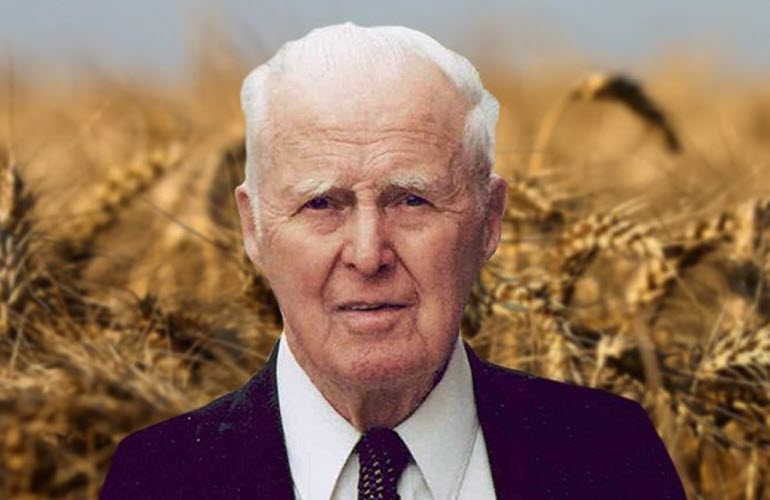Norman Borlaug: The Father of the Green Revolution

Norman Borlaug (25 March 1914 – 12 September 2009) was an American agronomist and humanitarian who is often referred to as the “father of the Green Revolution”.
Life and Career
He was born on 25 March 1914, in Cresco, Iowa. He earned a Bachelor of Science degree in forestry from the University of Minnesota in 1937. He then went on to earn a Master of Science degree in plant pathology from the same university in 1940. Borlaug completed his education at the University of Minnesota with a Ph.D. in plant pathology in 1942.
His education laid the foundation for his career in agricultural research and innovation. His expertise in plant pathology and his understanding of forestry and ecology helped him to develop new, high-yielding varieties of crops that could withstand disease and pests and could thrive in a variety of environmental conditions. His work in agricultural research had a significant impact on food production and food security around the world.
He later worked on a project in Mexico to develop new strains of wheat that could withstand disease and pests, and he succeeded in producing a variety of wheat that was high-yielding and disease-resistant. His work in Mexico led to the Green Revolution, a period of agricultural innovation that began in the 1940s and 1950s and helped to increase food production around the world. His new wheat varieties, along with other improvements in agriculture, led to significant increases in crop yields in countries like Mexico, India, and Pakistan.
His work helped to save countless lives by increasing food production and improving nutrition in developing countries around the world. He is widely regarded as one of the most influential scientists and humanitarians of the 20th century. He was also a member of the National Academy of Sciences and the American Academy of Arts and Sciences. He died on 12 September 2009, in Dallas, Texas.
Award and Legacy
His contributions to agricultural science, particularly in developing high-yield, disease-resistant wheat varieties, earned him numerous accolades, including the Nobel Peace Prize in 1970, the Presidential Medal of Freedom in 1977, and the Congressional Gold Medal in 2006.
The Norman Borlaug Award for Field Research and Application is an annual award given by the World Food Prize Foundation to individuals under the age of 40 who emulate Borlaug’s commitment to using science to improve food security. The award is given to researchers who demonstrate significant achievements in developing innovative and sustainable agricultural practices that can be used to reduce hunger and poverty.
Borlaug’s legacy extends beyond his scientific contributions. He was also an advocate for using agricultural science to address social and economic inequalities in developing countries. He believed that science and technology could be used to improve the lives of people in the world’s poorest regions, and he spent much of his career working to achieve this goal.
Observer Voice is the one stop site for National, International news, Sports, Editor’s Choice, Art/culture contents, Quotes and much more. We also cover historical contents. Historical contents includes World History, Indian History, and what happened today. The website also covers Entertainment across the India and World.

